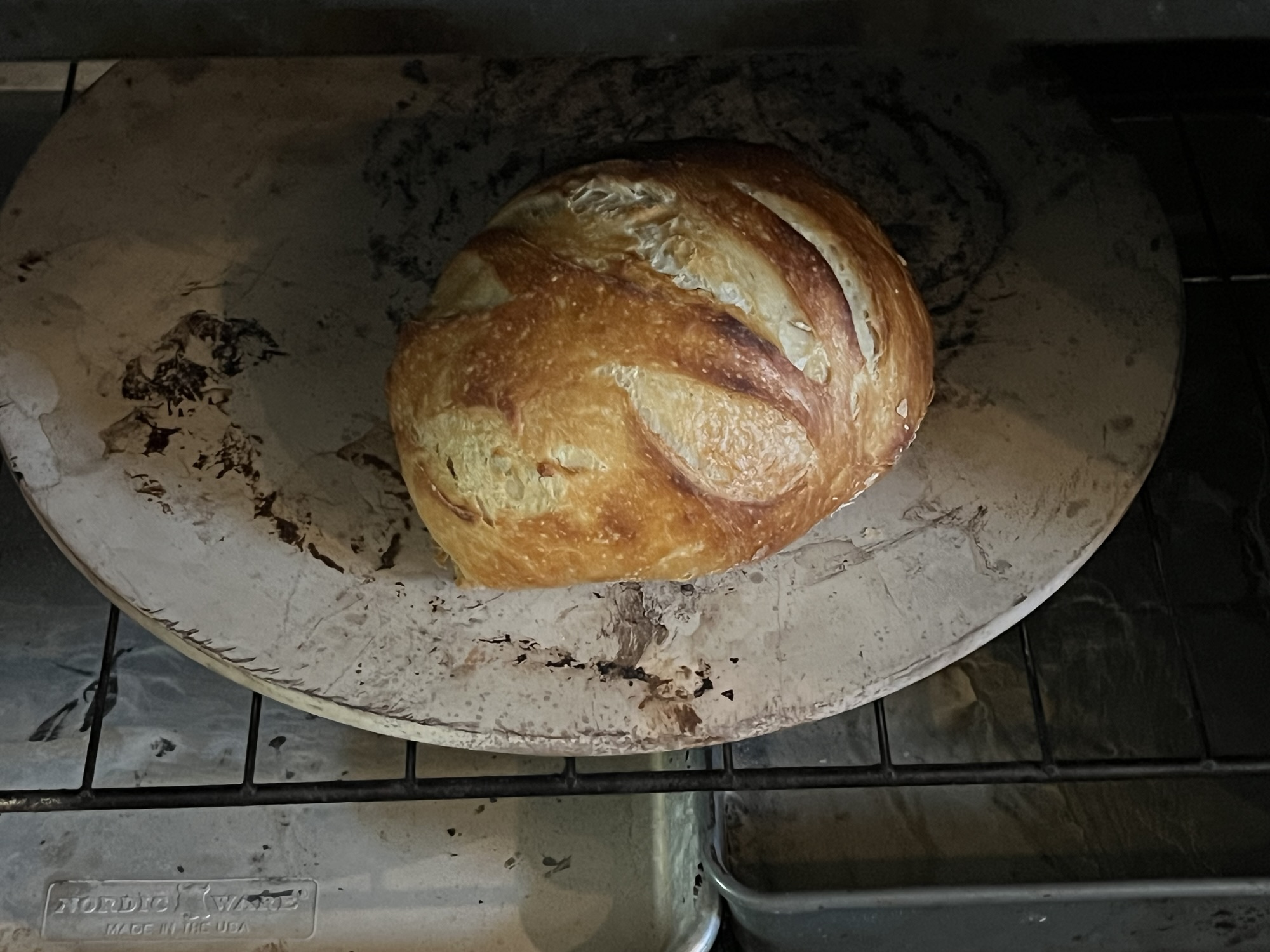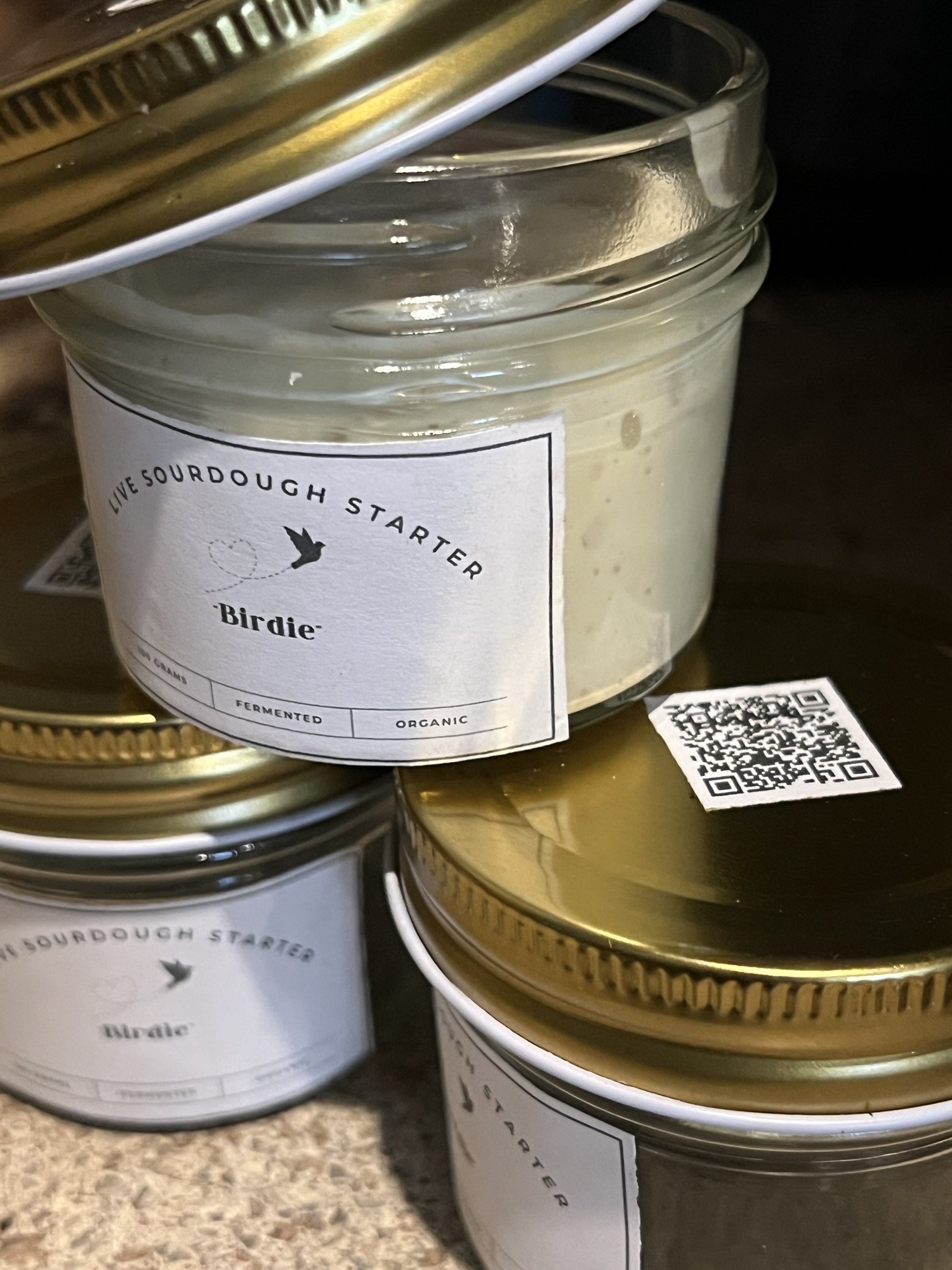After years of perfecting the art of raising poultry, homesteading, and making everything from beautyberry jelly to heritage pork lard, I’ve decided to take on a new challenge—sourdough. It’s been one of those things I’ve always admired from a distance, appreciating the tangy depth of a good loaf while convincing myself I didn’t have the time (or patience) to keep a starter alive. But as with all things homesteading, the best way to learn is to dive in, so here I am, about to embark on the bubbling, slightly unpredictable world of sourdough fermentation.
Armed with flour, water, and a sense of adventure, I’m setting out to create my very own sourdough starter—hopefully one that thrives instead of turning into a science experiment gone wrong. Will I master the perfect loaf, or will I end up with a countertop pet that demands more attention than my goats? Time will tell, but one thing’s for sure: this journey is bound to be as wild and rewarding as any other fermentation experiment on the farm.
Why Sourdough?
Sourdough bread has been enjoyed for centuries, long before commercial yeast became widely available. What makes sourdough unique is its fermentation process, which relies on wild yeast and lactic acid bacteria to leaven the bread naturally. This slow fermentation not only enhances flavor but also brings a host of health benefits that set sourdough apart from conventional bread. Whether you’re a home baker or just someone looking for a healthier alternative, here’s why sourdough deserves a place on your table.

Sourdough starter bubbling in a glass jar
1. Easier to Digest
One of the biggest benefits of sourdough bread is its improved digestibility. The natural fermentation process breaks down gluten and complex carbohydrates, making it easier for the body to process. This is particularly beneficial for individuals with mild gluten sensitivities, as the fermentation reduces the presence of hard-to-digest gluten proteins.
Additionally, the bacteria in sourdough help break down phytic acid, an anti-nutrient found in grains that can interfere with mineral absorption. This makes sourdough a better choice for those who experience digestive discomfort with regular bread.
2. Richer in Nutrients
Because fermentation reduces phytic acid, the body can absorb more essential minerals like iron, magnesium, and zinc from sourdough bread. These nutrients play a vital role in overall health, supporting immune function, energy production, and bone strength. In comparison, conventional bread often contains higher levels of phytic acid, which can limit nutrient absorption.
3. Supports Blood Sugar Control
Sourdough bread has a lower glycemic index (GI) compared to most other types of bread. This means it causes a slower, more gradual rise in blood sugar levels. The fermentation process modifies the structure of the carbohydrates, making them more resistant to rapid digestion. As a result, eating sourdough can help regulate blood sugar levels and prevent the energy crashes that come with high-GI foods.
For individuals managing diabetes or insulin resistance, choosing sourdough over refined white or whole wheat bread may be a better option.
4. Promotes Gut Health
While sourdough does not contain live probiotics like yogurt, it is rich in prebiotics—compounds that nourish the beneficial bacteria in your gut. The fermentation process produces organic acids that promote the growth of these good bacteria, contributing to a healthier digestive system.
Additionally, because sourdough is easier to digest, it reduces bloating and discomfort often associated with processed breads.
5. Naturally Preservative-Free
Unlike store-bought breads, which often contain preservatives and additives to extend shelf life, traditional sourdough relies on natural acids produced during fermentation to prevent spoilage. The lactic acid bacteria create an environment that inhibits mold growth, making sourdough a naturally longer-lasting bread without the need for artificial preservatives.
6. Superior Flavor and Texture
Anyone who has tasted a freshly baked loaf of sourdough knows there’s something special about its rich, tangy flavor and chewy texture. The fermentation process enhances the taste by developing complex, slightly sour notes that can’t be replicated in quick-rise breads made with commercial yeast.
The texture is another standout feature—crusty on the outside, airy and slightly chewy on the inside. Whether eaten on its own, toasted, or used for sandwiches, sourdough offers an unmatched eating experience.

Freshly baked sourdough bread with a golden crust
7. Fewer Additives and Healthier Ingredients
Traditional sourdough is made with just three simple ingredients: flour, water, and salt. There’s no need for the artificial additives, dough conditioners, or commercial yeasts often found in store-bought bread. This makes sourdough a cleaner, more wholesome option for those looking to avoid unnecessary chemicals in their diet.
Additionally, because sourdough requires a longer fermentation process, it doesn’t rely on quick-rise techniques that can lead to digestive issues. Instead, it embraces a slower, more natural way of baking that results in a more nutritious and flavorful final product.
Bringing Sourdough Into Your Kitchen
With all these benefits, it’s easy to see why sourdough has been a staple in traditional diets for centuries. Whether you’re interested in making your own starter from scratch or simply looking to incorporate more artisan bread into your diet, sourdough is a rewarding and delicious choice.
Getting Started with Sourdough
If you’re new to the world of sourdough, the first step is to create a starter—a living culture of wild yeast and bacteria that will naturally leaven your bread. This requires just flour, water, and a little patience. Over the course of several days, your starter will develop its signature tangy aroma and become active enough to bake with.
Once your starter is thriving, the possibilities are endless. You can bake everything from classic country loaves to sandwich bread, pizza crusts, and even sourdough pancakes. The fermentation process not only enhances flavor but also gives you the satisfaction of creating something from scratch, using only time and natural ingredients.
A Lasting Tradition
Baking sourdough is more than just making bread—it’s participating in a centuries-old tradition of slow, intentional food preparation. The process may take time, but the reward is well worth it: a healthier, more digestible, and incredibly flavorful bread that connects you to the past while nourishing your body in the present.
So whether you’re drawn to sourdough for its health benefits, its superior taste, or the joy of hands-on baking, there’s never been a better time to start your own sourdough journey. Grab some flour and water, start your starter, and get ready to experience bread the way it was meant to be!









